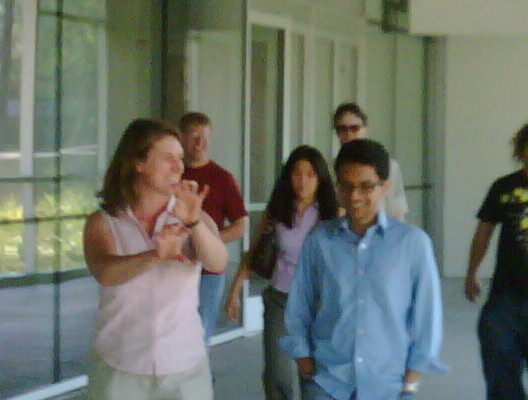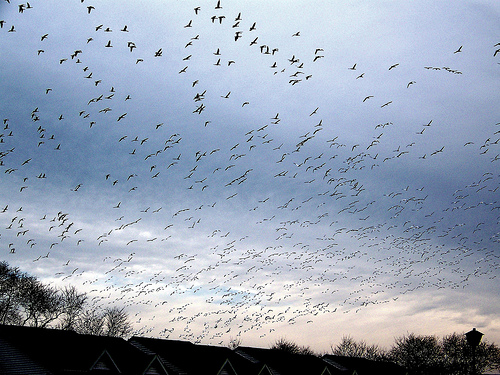These entries are going to be more sporadic than they used to, not because my life is super-boring right now, but because my life is super-hectic right now. When I’m not working on my primary or secondary research projects, or my muon veto system simulation, I am working with the SLAC users’ team preparing for the March trip to Washington D.C. That said, this was a thrilling week from all directions.
First, the weather here in California went from “fine” to “fantastic”. This culminated in a weekend of cooking out, and a lovely (but painful) bike ride over the Dumbarton Bridge, which crosses the San Francisco Bay near its most southern point. In contrast, my home state of Connecticut was smashed by a powerful blizzard that has dumped somewhere between 10 and 20 inches of snow in one day on New England. I guess you can call what we’re experiencing here in California “winter”, but it seems a great disservice to my loved ones!
Sunny weather may have been the reward for this week, but cloudy skies are gathering in response to the President’s call for an “American Competativeness Initiative” to begin the restoration of America’s scientific innovation velocity. I say velocity because the United States is a scientific leader on “coast”, its foot off the gas pedal hoping the fumes of its laurels will carry it forward. This is not because scientists have stopped pursuing great questions or digging hard to find buried answers, but because the major science funding agency – the American people – has wavered in its support of the very practice that makes it a great nation. For the last few decades basic research budgets outside the life sciences have stagnated. While the NIH budget doubled in five years from 1998 to 2003, its rapid growth was followed by a nearly flat envelope of growth, with prospects of cuts in the future.
I say velocity because there are people, like Robert Reich and Charles Krauthammer, who don’t see the need to spend more money on research. “Let industry do it if it’s so important,” says Reich, and “Don’t believe the hype. We’re still No. 1” says Krauthammer. They’ve missed the point. Industry can’t be trusted to train the next generation of scientists, because they have shown a willingness not only to sacrifice long-term investments for short-term goals (despite their TV ads), and because they’ve shown a willingness to uproot their factories and offices and move them to other nations where the labor is cheap and the government is supportive. That doesn’t help American students. As for Krauthammer’s pronouncement, he’s missed the simple fact that while a body in motion remains in motion, unless acted upon by an outside force, it says nothing of the other bodies cruising behind us, the force of their growing economies pressed at their backs, propelling their innovation capacity forward. We’ve got our foot off the gas pedal, but India and China and Europe are applying steady pressure, and they can see us glancing in the rearview mirror.
Insuring the future of science in America means doing good science. This week, I think I finally got my wind back and started doing my part for that endeavor. I wrapped up a few loose ends on simulation work and event display development, while pushing some of my work on the study of radiative decays of the B meson forward. Summer isn’t looking like such a terrible goal anymore!



